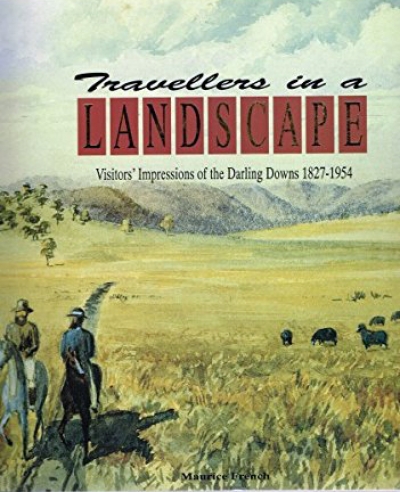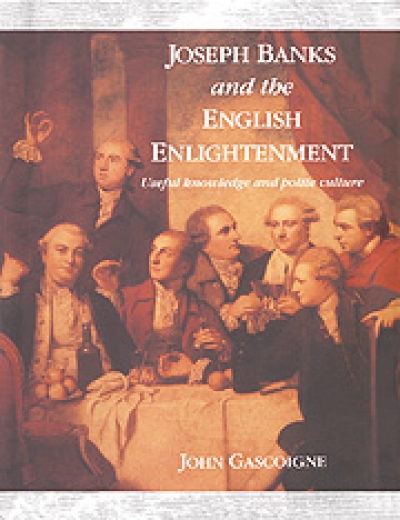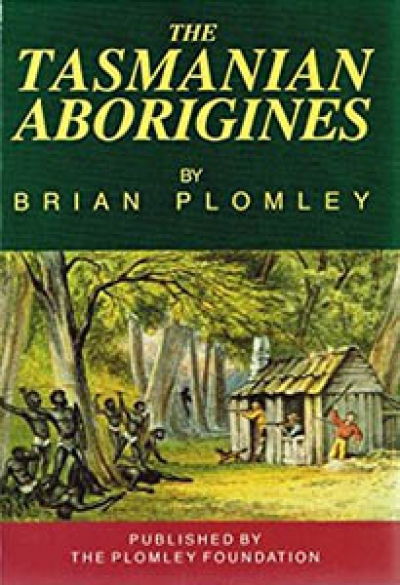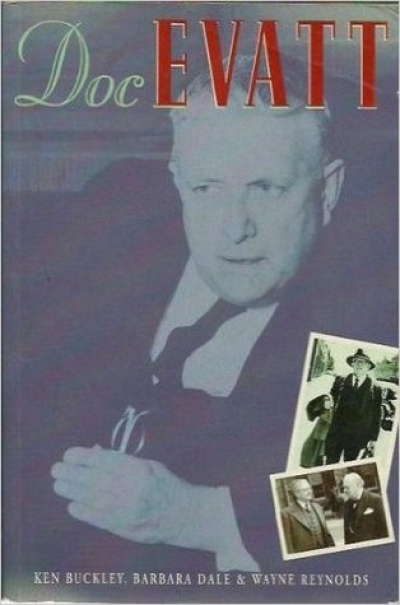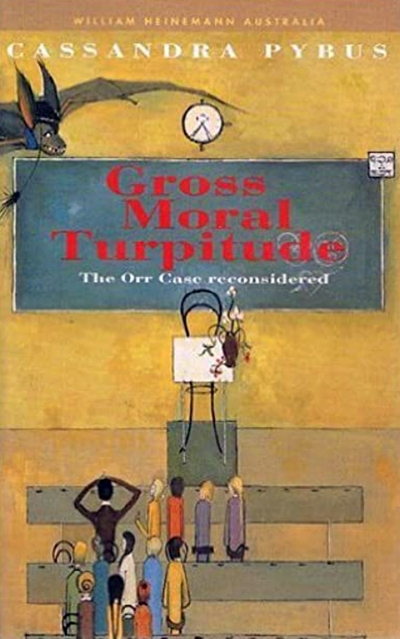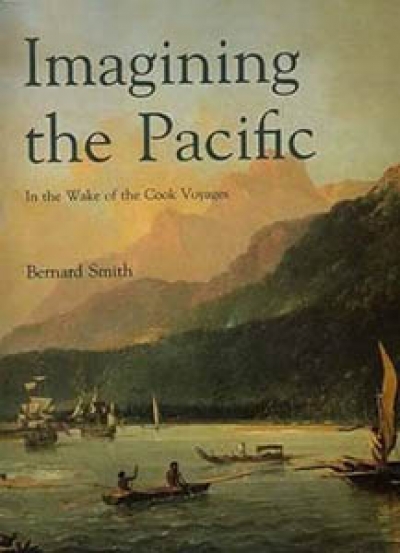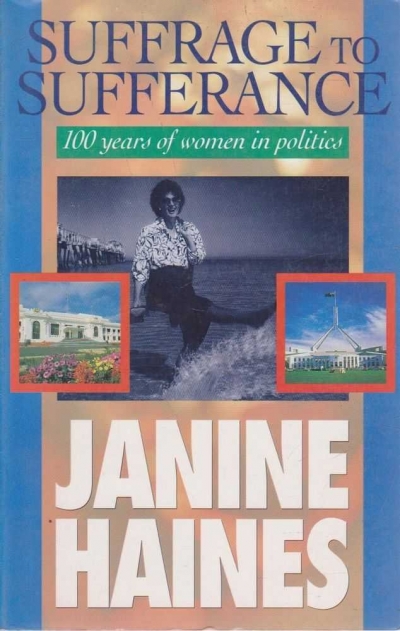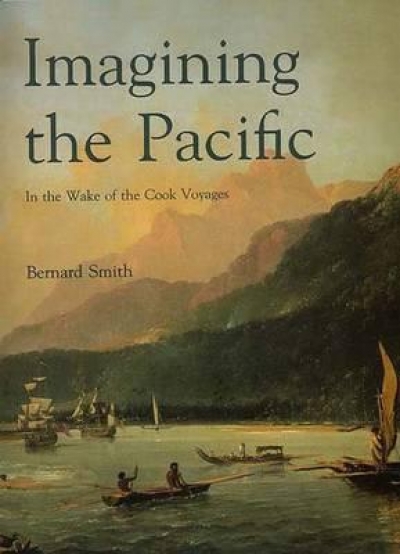History
Travellers in a Landscape: Visitors’ impressions of the Darling Downs 1827–1954 by Maurice French
This is Maurice French’s sixth work on the Darling Downs. An Associate Professor of History and Dean of the Faculty of Arts at the University of Southern Queensland, he is ideally placed to study this fertile plateau in south-east Queensland, reputedly the richest agricultural land in Australia.
... (read more)Joseph Banks and the English Enlightenment: Useful knowledge and polite culture by John Gascoigne
In recent years, scholars have attempted to come to grips with the prodigious range of Sir Joseph Banks’s activities during a public career that lasted more than fifty years. Wherever one turned in the establishment circles of George III’s England there stood, it seemed, the massive figure of Joseph Banks: President of the Royal Society, Privy Councillor, adviser to government, patron of the sciences, Cook’s sailing companion and ‘Father of Australia’ for some, the moving force behind the African Association and ‘Father of African Exploration’ for others.
... (read more)This is a sad, short book – sad in more ways than one. It is the last work of this century’s greatest authority on the Tasmanian Aborigines. It is the distillation of sixty years of detailed and diverse work. And it is deeply flawed.
Brian Plomley, who died earlier this year, was best known for his doorstop volumes on the original Tasmanians (The Friendly Mission and Weep in Silence). For these we owe Plomley a great debt. He dedicated decades of his life to getting inside the mind of G.A. Robinson, the so-called Conciliator of Tasmania’s last tribal Aborigines. His insights into that man and his era, and the thoroughness of his work on the thinly-spread evidence of pre-European Aboriginal culture in Tasmania, are unique. They would lead us to expect the present slim volume to be a rich distillation. Instead the undoubted riches are contaminated by errors both of fact and judgement.
... (read more)Doc Evatt: Patriot, Internationalist, Fighter and Scholar by Ken Buckley, Barbara Dale and Wayne Reynolds
In his foreword to Doc Evatt, Jim Hagan claims that this is the fourth full-length biography of Dr. H.V. Evatt and suggests that only one other Australian politician has scored as many. Leaving aside the fact that Allan Dalziel never pretended that his book, Evatt the Enigma, was anything more than a profile of the man he worked with for twenty years, these assertions create the misleading impression that a substantial body of literature on Evatt exists. Academics have long lamented the lack of a comprehensive and scholarly biography of one of Australia’s most important and complex judicial and political figures. The very recent appearance of Peter Crockett’s Evatt: A life, characterised by wide-ranging research but a crude psychoanalytical approach, chronic disorganisation, a weakness in the analysis of international affairs, and a lack of historical perspective, disappointed in many ways.
... (read more)In October 1993 I picked up a copy of Window, the ‘Weekly Hong Kong Newsmagazine with Exclusive Coverage of China’ and found in the Business and Finance section a Profile, ‘Bob Hawke’s Eagle Eye in Asia’. There was a photograph of the Eagle, who described himself as a ‘business commentator and facilitator of increased enmeshment in Asia’. This was certainly a confident label. Reading on I discovered that Hawke saw himself as ‘overwhelmingly responsible for the vision of Australia as part of Asia’. He told the reporter than in his first days as Prime Minister he had used the phrase, ‘our future lies in enmeshment with Asia’, a sentiment that was at first greeted sceptically, but now, Hawke claimed, ‘no one questions the wisdom and correctness of Hawke’s vision. No one.’ Emphatic stuff, claiming sole credit for long term shifts in opinion and cultural practice, while dismissing the doubters. If that was all there was to my theme, this would be a very brief history indeed.
... (read more)Gross Moral Turpitude: The Orr Case reconsidered by Cassandra Pybus
There were no winners in the first round of the Orr Case. Sydney Sparkes Orr lost his job as Professor of Philosophy at the University of Tasmania in 1955. Suzanne Kemp, who had accused him of seduction, lost her reputation. Her father, who had supported her accusations, was subjected to all manner of speculation and innuendo. Edwin Tanner, a mature-age student who had complained about Orr’s poor teaching and his requests for professional favours, had his life ruined. Dr Milanov, Orr’s colleague who had protested that Orr was harassing him professionally, found himself subjected to just the kind of persecution he had fled in his native Serbia.
... (read more)Imagining the Pacific: In the wake of the Cook voyages by Bernard Smith
At the conclusion of the fascinating essay ‘Coleridge’s Ancient Mariner and Cook’s Second Voyage’ in his recently published book Imagining the Pacific: In the Wake of the Cook Voyages, Bernard Smith writes:
... (read more)The most carefully planned and the most scientifically and efficiently conducted expedition ever made up to its time in the realm of reality provided the poet with a world of wonder and a nucleus of recollections from whence emerged in its own good time the most romantic voyage ever undertaken in the realm of the imagination.
Suffrage to Sufferance: 100 years of women in politics by Janine Haines
Janine Haines’s book, Suffrage to Sufferance is a good read. For women who are in public life and who insist on equality, it is a realistic and often humorous read. For those women who aspire to public life or simply equal rights, it is an entertaining – lost journalistic – account of where women’s aspirations might lead them. For men who understand or want to understand women’s drive for equality, there is an idea of the barriers, seen and unseen, that women face. And there is some sense of women’s struggle for political influence and recognition.
... (read more)Australian Cultural History, Volume 11: Books, Readers, Reading edited by David Walker, Julia Hornen and Martyn Lyons
It is refreshing to find an approach to literature that largely avoids traditional methods of discourse. Books, Readers, Reading is a compilation of essays from an Australian Cultural History Conference held in June 1991 and it encompasses subjects as diverse as Bible reading, a history of Australia’s first paperbacks and circulating libraries.
... (read more)Imagining the Pacific in the Wake of the Cook Voyages by Bernard Smith
The chapter explores the influence of William Wales on the young Coleridge when he was a student at Christ’s Hospital, London, Wales, the scientist-navigator who travelled with Cook on the Resolution, was appointed Master of Mathematics at Christ’s Hospital in 1775 and Smith, in this engaging essay, argues that the young Coleridge would have heard the stories of their momentous journey in search of the great South Land. For not only was Wales a teacher of mathematics but his job also included drumming up midshipmen recruits from the Lower School for the Royal Navy. He was ideally suited for this – a man of great stature and intellect who could deliver an exhilarating first-hand account of what it was like to be pushing to the very frontiers of knowledge through maritime exploration.
... (read more)
